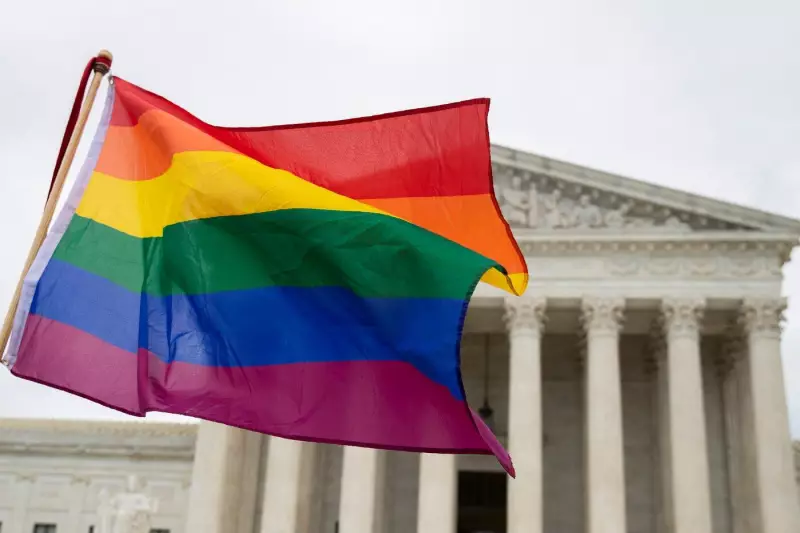
In a significant victory for LGBTQ rights, the United States Supreme Court has declined to reconsider its landmark 2015 decision that legalized same-sex marriage across the nation. The court on Monday rejected an appeal from Kim Davis, a former county clerk from Kentucky, who sought to overturn the ruling in Obergefell v. Hodges.
A Decisive Rejection and Its Implications
The court offered no explanation for its decision to deny the appeal, a move that was closely watched given the court's conservative majority. This same majority was responsible for overturning Roe v. Wade in 2022, which had fueled concerns that Obergefell could be the next landmark case to be reversed. The swift rejection of Davis's bid has been celebrated by civil rights advocates as a reaffirmation of marriage equality.
Kim Davis, who was the clerk for Rowan County, Kentucky, had refused to issue marriage licenses to same-sex couples following the 2015 ruling, citing her religious beliefs. This led to multiple lawsuits, a federal court order, and a brief jail term for Davis. A jury subsequently ordered her to pay $360,000 in damages and legal fees to the couples she denied.
The Legal Battle and Religious Objections
Davis's appeal argued that her religious freedoms under the First Amendment should protect her from legal liability, especially since she is no longer a public official. However, the 6th U.S. Circuit Court of Appeals had already rejected this argument, a decision the Supreme Court has now left in place.
Mat Staver, founder of the Liberty Counsel which represented Davis, criticized the outcome, stating Davis faces “crippling monetary damages based on nothing more than purported hurt feelings.” He vowed to continue working to overturn the Obergefell decision, claiming, “It is not a matter of if, but when.”
In contrast, advocacy groups hailed the court's action. Kelley Robinson, president of the Human Rights Campaign, told CNN, “Today, love won again. When public officials take an oath to serve their communities, that promise extends to everyone — including LGBTQ+ people.”
A Look Back at the Landmark Obergefell Ruling
The original Obergefell v. Hodges decision in June 2015 was a historic moment. Authored by the since-retired Justice Anthony Kennedy, the ruling stated that the fundamental right to marry is guaranteed to same-sex couples. Justice Kennedy wrote, “No union is more profound than marriage, for it embodies the highest ideals of love, fidelity, devotion, sacrifice and family.”
The decision prompted widespread celebration, with the White House illuminated in rainbow colours and couples rushing to courthouses to marry. According to the Williams Institute at the UCLA School of Law, nearly 600,000 same-sex couples have married in the U.S. since the ruling.
However, the ruling was not without its dissenters. The late Justice Antonin Scalia blasted it as a “threat to American democracy,” and his ideological successors, including Justices Clarence Thomas and Samuel Alito, were among the original dissenters.
Veteran civil rights attorney Mary Bonauto, who argued the Obergefell case, celebrated the latest development. “The only thing that has changed since Obergefell was decided is that people across the country have seen how marriage equality provides protection for families and children,” she said. “Today millions of Americans can breathe a sigh of relief for their families.”
While this specific challenge has been turned away, the court's conservative stance on other issues concerning the LGBTQ community, particularly transgender rights, means advocates remain vigilant for any future appeals that may threaten the precedent.
In Canada, same-sex marriage has been legal nationwide since the passage of the Civil Marriage Act in 2005.





